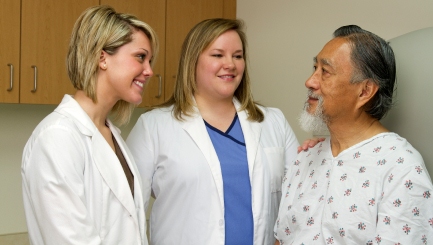Are Cancer Patients Waiting Too Long for Second Treatments?
 If you have cancer, your wellbeing may be at risk thanks to belated secondary treatment. This is according to the Scottish Labour Party, who says that cancer patients have to wait too long for follow-up treatment after surgery, and have no guarantees over waiting times for follow-up radiotherapy or chemotherapy because these times are not subject to a target.
If you have cancer, your wellbeing may be at risk thanks to belated secondary treatment. This is according to the Scottish Labour Party, who says that cancer patients have to wait too long for follow-up treatment after surgery, and have no guarantees over waiting times for follow-up radiotherapy or chemotherapy because these times are not subject to a target.
When it comes to first treatment, new Scottish government data suggests that 98% of cancer patients wait for no more than 31 days. This is why Health Secretary Alex Neil argued that further treatment should be based on clinical urgency and not political targets. ‘There is a place for targets, clearly we have targets for the initial diagnosis,’ he said. ‘But beyond that I don’t think it makes sense to set further targets. These decisions needed to be clinically driven by clinicians, not target driven by politicians.’
Yet the constituents of Scottish Labour health spokeswoman Jackie Baillie claim to have experienced “extraordinarily long waits” for their follow-up cancer treatment. Baillie said that cancer treatment is better in England because secondary treatment is subject to a 31 day waiting time, but when the party contacted Scotland’s 14 health boards about waiting times for the “whole cancer journey,” it was told that data on secondary treatment was not kept.
Baillie explained, ‘When you speak to clinicians, their priority is to treat as quickly as possible. This is a question of resources and priorities. The cabinet secretary really needs to ensure that the clinicians are supported in treating people with cancer.’ Cancer charities report that there is a need for secondary treatments to take place quickly, as it is an anxious time for patients as well as being important on medical grounds.
However, Neil asserted that setting too many targets could skew, rather than boost, resources. ‘That’s why we’ve actually reduced the number of targets substantially over the last five years,’ he said, adding that, because of this, doctors haven’t had to base clinical decisions on reaching targets, but rather on what’s best for the patient, and this has helped them to make ‘the right clinical decision in every case’.


Comments are closed.